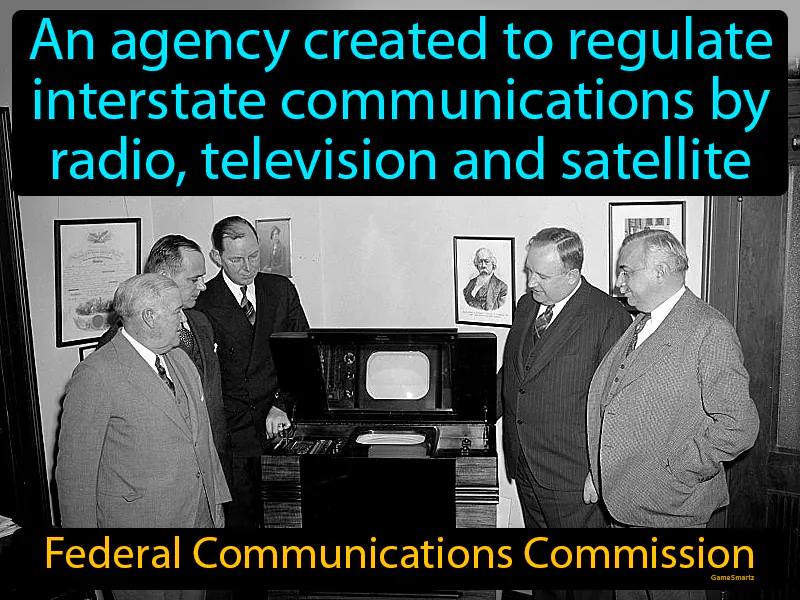Federal Communications Commission
Federal Communications Commission: Easy to understand
During the Postwar Boom from 1946-1960, the Federal Communications Commission (FCC) played a crucial role in managing the rapid expansion of television and radio, which became central to American life. With more people buying TVs and radios, the FCC was responsible for ensuring that broadcasters operated fairly and served the public interest. This was important because it helped organize the airwaves, preventing interference and promoting diverse viewpoints. Today, the FCC still affects everyday life by regulating how we receive information through modern technologies like the internet and cell phones. For example, when you stream videos on your phone or watch cable TV, the FCC ensures that these services run smoothly and fairly, impacting your access to information and entertainment.

Practice Version

Federal Communications Commission: An agency created to regulate interstate communications by radio, television and satellite. Federal Communications Commission. The Federal Communications Commission FCC is a U.S. government body that oversees and regulates communications channels like radio and TV.